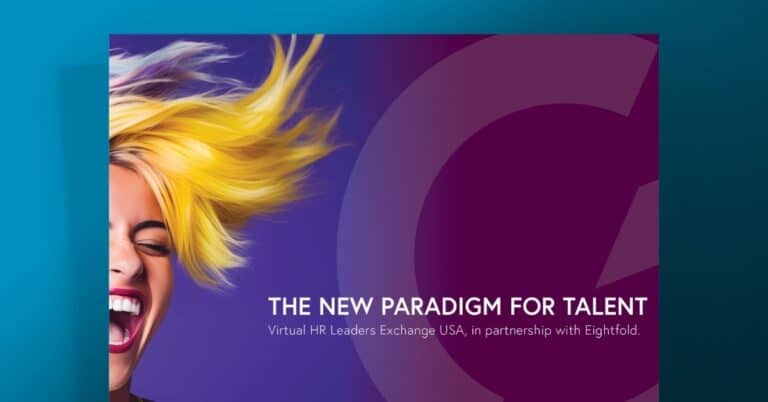
The new paradigm for talent
The new paradigm for talent
At a time when tenure is short, change is accelerated, and talent is scarce, the focus on the right skills is more important than ever.
Learn directly from HR leaders why a skills-based approach is essential, as well as the long-term benefits of upskilling.
Top takeaways include:
- The benefits of creating an organization-wide skills database.
- Why middle managers may be blocking talent from thriving.How to align technology with business strategy and usability.
Skills first is bubbling up to the top
As our introduction hinted, a business lives or dies by the skills it has at its disposal. To take an example in the news (but far away from our attendees): if Boeing can’t attract good engineers, it simply won’t be able to design and build aircraft. In our fast-moving world, HR’s focus was primarily on people: attract and keep the best talent and your business will benefit.
And that’s not going to change – companies will still put effort into recruitment and retention. But the HR specialist is being encouraged to take a more granular view: the unit of measurement of talent is not ‘the person’, but ‘the skill’. Businesses need skills, and people bring more than one skill to the business. Indeed, the focus on skills has partly been highlighted by the fact that every job description now seems to contain 30 bullet points of “desirable” skills. This recognition, manifested in all sorts of ways, is being called a ”skillsfirst” approach.
Dig deep into the internal labour market (ILM)
A “skills first” approach usually highlights an alarming number of gaps in a business – particularly where recruiting the right talent can take months. This has led to a new focus on the internal labour market (ILM): where recruitment is faster, onboarding is easier, and people gain new pride from being internally promoted. What’s not to love?
“Understanding what you have inside of your doors is important”
This is not the same as just “making jobs available internally”. One of our attendees spoke about a role which was advertised internally for over 100 days without application, despite being an ideal step-up role (indeed, the job ultimately went to an internal candidate). The purpose of the skills database is to avoid exactly these sorts of delays by giving HR enough information to be proactive – to be able to approach an employee and say, “this might be ideal for you…”.
You might also like...
Get the latest talent news in your inbox every month
By submitting this form, I consent to Eightfold processing my personal data in accordance with its Privacy Notice and agree to receive marketing emails from Eightfold about its products and events. I acknowledge that I can unsubscribe or update my preferences at any time.
